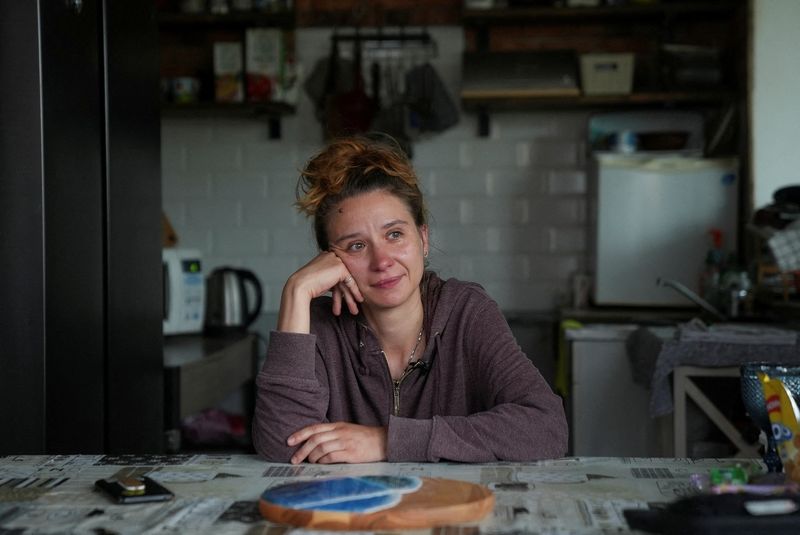By James Imam
(Reuters) - When Russia invaded Ukraine a year ago, award-winning Ukrainian filmmaker Alisa Kovalenko put down her camera to join the battles raging on the country's eastern front.
Kovalenko returned to making films, driven by the belief that the silver screen can be an equally effective weapon to fight the enemy as she tells the story of five teenagers determined to pursue their dreams despite the carnage of war that envelops their worlds.
"This cultural front is really important," Kovalenko told Reuters. "It helps people around the world feel and understand what people are going through."
Kovalenko's documentary, "We Will Not Fade Away", opens in the Panorama section of the Berlinale on Feb. 22, forming part of a broader Ukraine focus at this year's festival.
The film is shot over three years in the villages of Zolote-4 and Stanytsia Luhanska, in the eastern Donbas region where fighting has taken place since 2014.
Kovalenko started filming in 2019 but stopped when she signed up for a Ukrainian voluntary battalion last March. She said she returned to filming four months later after Russian forces bombed the fighters' base and one of her friends was killed.
"I almost signed a contract to join the regular army," Kovalenko said. "But I felt it was important to finish the film; I couldn't leave it like this."
The film's protagonists – including an aspiring motorcycle mechanic and a nascent rapper – embark on an inspirational walking trip in the Himalayas before returning to Ukraine.
In the final credits, viewers learn that the villages have now fallen under Russian control and that contact with some of the teenagers has been lost.
Kovalenko said Russia's full-scale invasion had changed the meaning, colour and form of the film.

"I wanted to make a film about children realising their dreams in a place that does not lend itself to dreaming," Kovalenko said. “It has become about how war destroys those dreams."
Russia denies targeting civilians in what it calls a "special military operation" to protect Russian security. Ukraine and its allies call the war an unprovoked land grab.